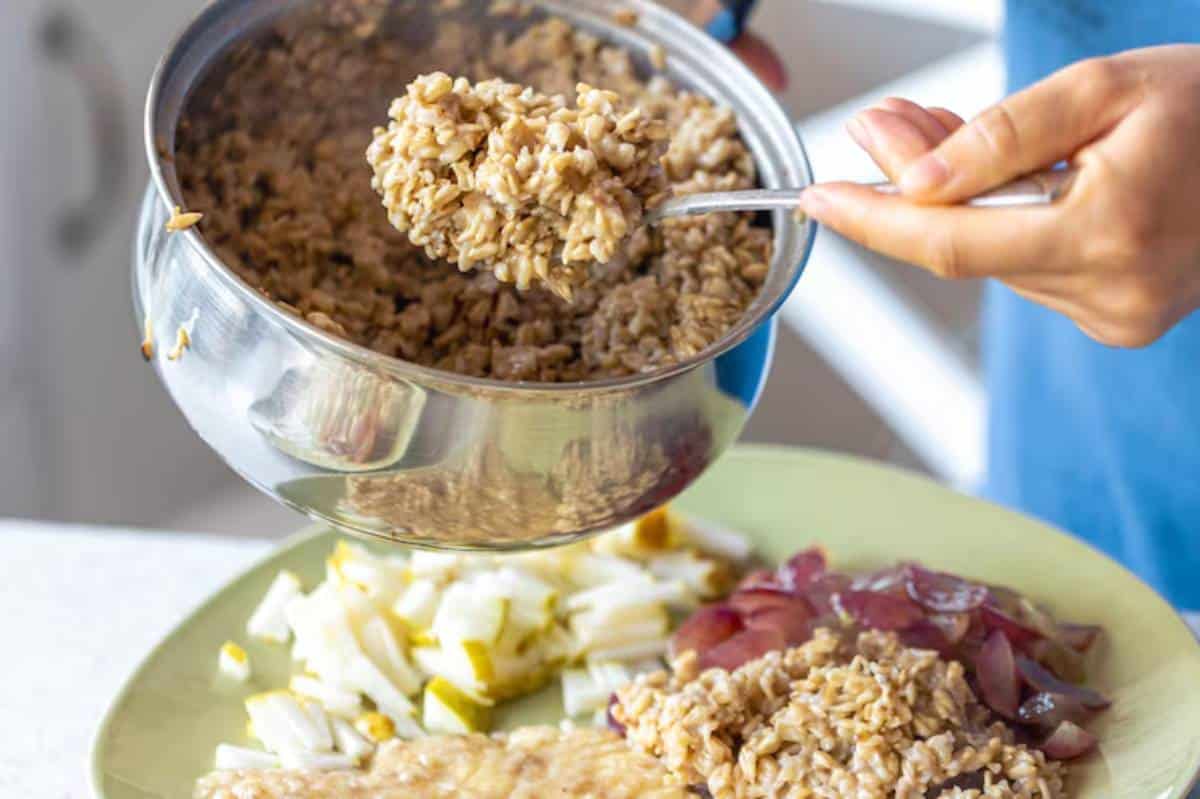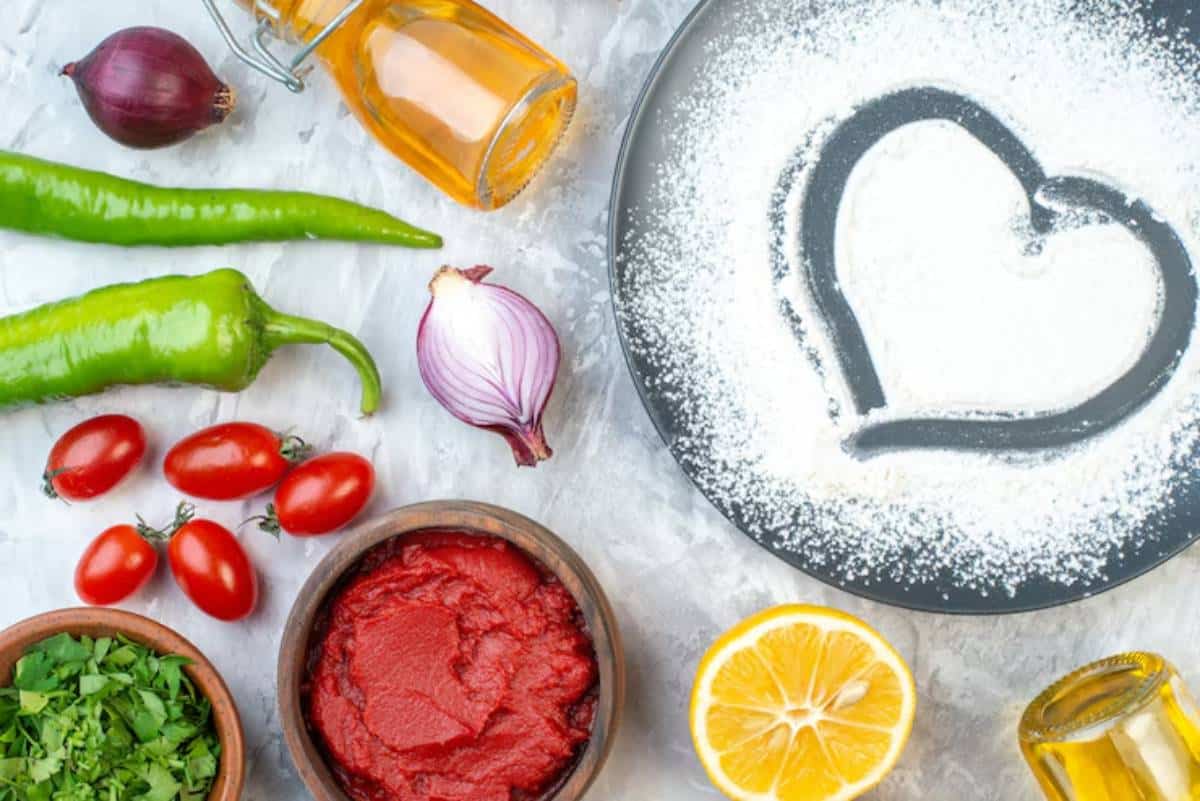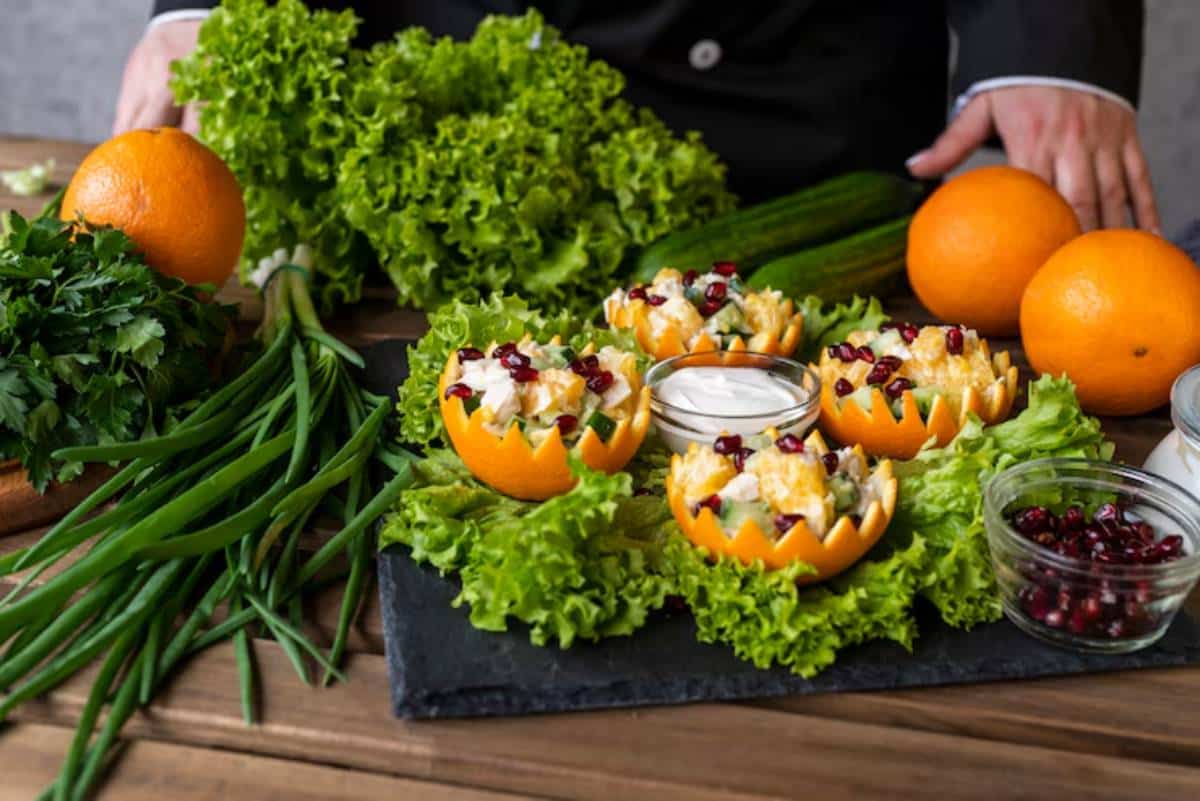
How to Use Fresh Herbs to Enhance Mediterranean Dishes
Ever wondered why Mediterranean food tastes so vibrant and fresh? The secret lies in the herbs. From the peppery kick of fresh oregano to the delicate sweetness of basil, herbs bring life to this sun-kissed cuisine. If you’re looking to add depth and authenticity to your meals, mastering how to use fresh herbs to enhance Mediterranean dishes is essential.
In this guide, you’ll learn practical flavour-boost tips, herb pairing tricks, and ways to weave these greens into everyday cooking. Whether you’re new to this style or a seasoned foodie, this is your roadmap to mastering herb usage in the Mediterranean diet.
Understanding the Core: Why Herbs Matter in Mediterranean Cooking
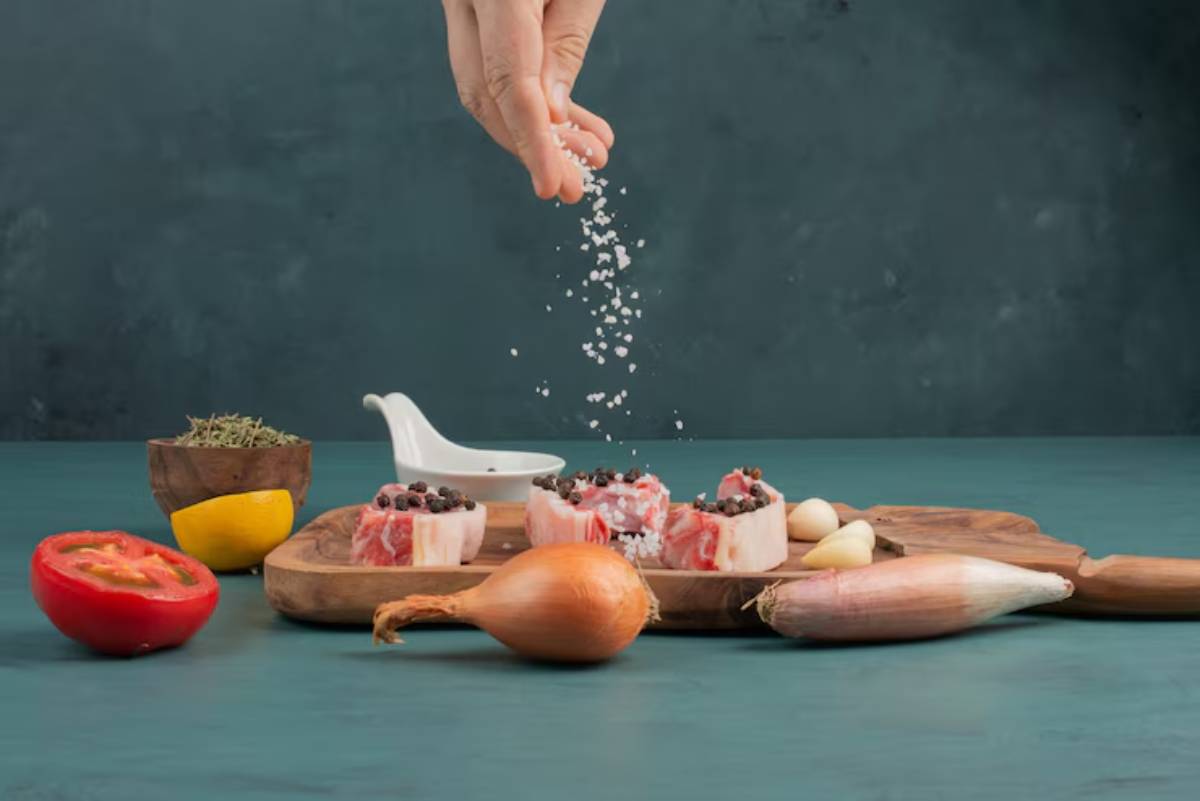
Nature’s Flavour Enhancers
In traditional Mediterranean homes, herbs aren’t just garnish—they’re foundational. Think of them as culinary storytellers, bringing the taste of coastal breezes, sun-warmed soil, and family gatherings into every bite.
These herbs serve several purposes:
- Flavour builders: Replace salt and fat with complexity and aroma.
- Nutrient boosters: Rich in antioxidants and anti-inflammatory compounds.
- Mood enhancers: Their scents trigger memory and comfort (ever smelled rosemary on roast lamb?).
Research-Backed Benefits
Studies highlight how herbs like basil, oregano, and thyme:
- Improve digestion
- Fight free radicals
- Support heart health
- Reduce the need for added sodium
In fact, the Mediterranean diet’s success partly comes from these flavourful additions.
Pro Tip: Use fresh herbs toward the end of cooking to retain flavour and colour.
Quick Guide: Mediterranean Herb Essentials
Here’s your go-to cheat sheet for Mediterranean fresh herbs:
| Herb | Flavour Profile | Ideal Pairings |
|---|---|---|
| Basil | Sweet, peppery | Tomatoes, pasta, and mozzarella |
| Oregano | Pungent, earthy | Lamb, grilled veg, olive oil |
| Thyme | Warm, woody | Roasts, lentils, stews |
| Parsley | Fresh, grassy | Salads, tabbouleh, fish |
| Mint | Cool, sweet | Couscous, yoghurt, fruit |
| Rosemary | Pine-like, strong | Potatoes, lamb, focaccia |
| Dill | Bright, slightly tangy | Fish, cucumbers, dips |
| Bay Leaf | Subtle, bitter | Soups, braises, and tomato sauce |
| Sage | Earthy, slightly peppery | Poultry, beans, stuffing |
Important: Chop with a sharp knife. Bruising the leaves reduces their taste.
Step-by-Step: How to Practise Herb Usage in Mediterranean Cooking
1. Start with the Classics
Get comfortable using the top five:
- Basil
- Oregano
- Parsley
- Thyme
- Mint
These form the base of most Mediterranean meals.
2. Add Fresh Herbs at the Right Time
- Hard herbs (rosemary, bay leaf): Add early for depth
- Soft herbs (basil, parsley): Add at the end to preserve flavour
3. Pair Herbs with Signature Dishes
- Caprese Salad: Fresh basil + extra virgin olive oil
- Greek Lamb Chops: Marinate in garlic, lemon juice, and oregano
- Grilled Sea Bass: Top with parsley, dill, and lemon zest
- Tabbouleh: Packed with fresh parsley and mint
- Mediterranean Roasted Veg: Add thyme and rosemary before roasting
4. Grow Your Own
Even a windowsill herb garden works. You’ll save money and get better flavour.
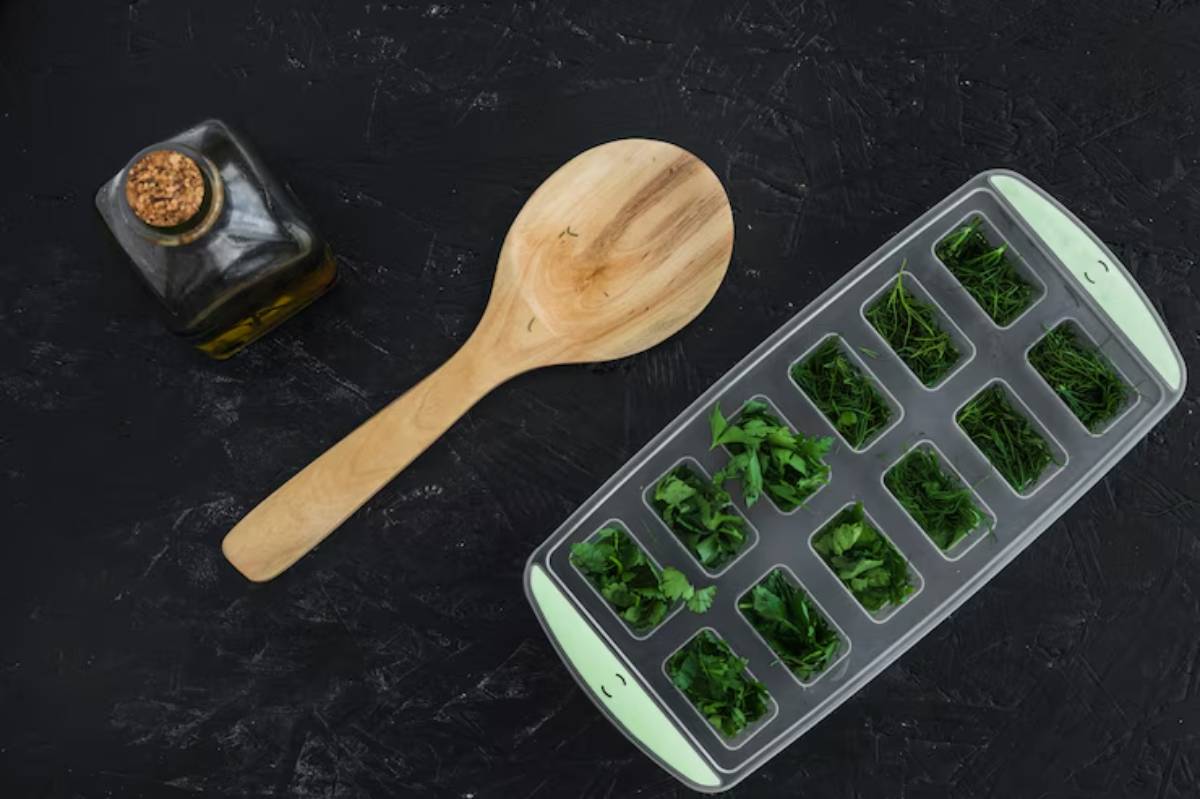
5. Preserve Leftovers
Chop and freeze in olive oil in an ice cube tray. Great for sauces, soups, and stews.
Make everyday meals herb-forward
- Top your toast: Sprinkle chopped parsley, mint, or basil over avocado toast, hummus toast, or labneh with olive oil.
- Upgrade your grain bowls: Stir dill or oregano into couscous or quinoa, then garnish with mint and lemon zest.
- Add to egg dishes: Mix herbs into scrambled eggs, omelettes, or frittatas—especially parsley, dill, and thyme.
- Freshen up dips: Blend mint and dill into Greek yoghurt for a tangy spread. Add basil or oregano to hummus for an earthy twist.
- Sprinkle on roasted veg: Add fresh rosemary or thyme before roasting, then finish with chopped parsley just before serving.
- Brighten salads: Use handfuls of chopped herbs in place of some leafy greens, especially rocket, mint, and coriander.
Why it works: These small additions instantly add colour, flavour, and aroma. When used regularly, herbs help you reduce salt, enhance taste, and make healthy meals more satisfying.
Best Practices & Additional Insights
Think in Layers
Use herbs in multiple ways:
- In marinades (oregano, thyme)
- During cooking (bay leaf, rosemary)
- As garnish (parsley, basil)
This builds complexity and enhances aroma.
Match Herb Intensity to Dish Type
- Light dishes → mild herbs (basil, dill)
- Robust dishes → strong herbs (rosemary, sage)
Don’t Ignore Stems
Some herbs like parsley and coriander have flavourful stems. Finely chop and use in soups or stocks.
FAQs
Q: Can I use dried herbs instead?
A: Yes, but fresh herbs offer a brighter flavour. Use about 1/3 the quantity when substituting dried for fresh.
Q: How long do fresh herbs last in the fridge?
A: Most keep well for 5–7 days. Wrap in a damp towel and store in a zip-lock or jar with water.
Q: Which herb is best for Mediterranean chicken dishes?
A: Oregano or rosemary work beautifully—use in marinades or roasting.
Q: Are herbs safe for kids and the elderly?
A: Absolutely! They help reduce salt and sugar intake naturally.
Conclusion & Call to Action
Fresh herbs play a vital role in Mediterranean cooking. They bring brightness, aroma, and numerous health benefits. When you want to enhance a basic tomato salad or create a delicious, slow-cooked stew, understanding how to incorporate these herbs can truly change your cooking experience. It can transport your kitchen to a Mediterranean paradise filled with flavour.
Next time you consider adding salt to your dish, take a moment to think—could a handful of fresh herbs provide even greater flavor and depth?
